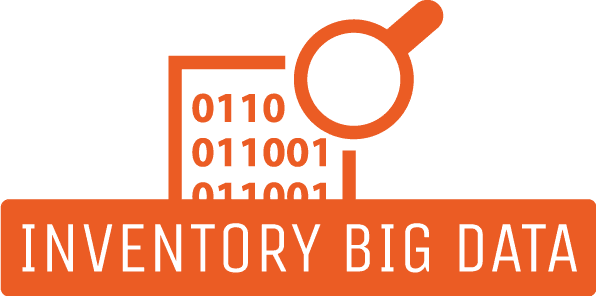Job description: Chief Financial Officer
The Chief Financial Officer (CFO) manages and oversees the company’s finances, including financial planning, risk management, budgets and accounting. He or she analyzes financial performance, develops long-term strategies, communicates with investors and leads financial teams.
Description
Job description
Job title: Chief Financial Officer (M/F)
Owen is a Chief Financial Officer (CFO), the senior executive responsible for managing the finances of his company or organization. As CFO, Owen plays a key role in :
- financial planning
- risk management
- budgeting
- accounting and financial control.
Role :
The CFO is a key position within any company or organization. The CFO is responsible for managing and overseeing finance, financial planning, risk management, budgeting and accounting. He or she plays an essential role in the company’s growth and financial stability.
Main responsibilities:
- Financial management: Oversee and manage the company’s financial operations, including accounting, financial reporting, forecasting and budget planning.
- Financial analysis: Review the company’s financial performance, identify areas for improvement and growth opportunities, and implement strategies to maximize profitability.
- Strategic planning: Develop and implement long-term financial strategies to ensure the company’s profitability and stability.
- Risk management: Assess and minimize financial risks, implementing control mechanisms and ensuring compliance with applicable regulations.
- Investor and stakeholder relations: Communicate with investors, banks and other stakeholders to present the company’s financial results, investment plans and outlook.
- Leadership: Manage and supervise the finance and accounting teams, ensuring their professional development and effective communication between the company’s various departments.
Profile required:
- Degree in finance, accounting, business management or related field.
- Significant experience in finance or accounting, with experience in team management and financial leadership.
- Excellent understanding of accounting principles and financial standards (e.g. IFRS).
- Strong financial analysis, budget planning and risk management skills.
- Ability to develop and implement effective financial strategies.
- Excellent communication and leadership skills.
- Good command of financial management software and reporting tools.
- Ability to work in a team and collaborate with other departments within the company.
This job description is intended to provide an overview of the CFO profession, without any specific recruitment offer.
To improve a CFO’s skills and performance, it’s important to offer training tailored to his or her professional needs. Here are a few training courses that may be useful for a CFO:
- Advanced financial management: Training courses in advanced financial management provide in-depth knowledge of corporate finance, investment appraisal and risk management.
- Financial analysis: Training in financial analysis will help the CFO to better understand and interpret financial data, improve forecasts and make informed decisions.
- Leadership and team management: Training courses in leadership and team management will help the CFO develop skills in communication, motivation and personnel management.
- Project management: Training in project management will enable the CFO to better plan, organize and monitor financial projects, and improve collaboration with other company departments.
- Corporate strategy: Training in corporate strategy will help the CFO understand the company’s strategic challenges, develop a long-term vision and align financial objectives with overall corporate goals.
- Corporate governance and compliance: Training in corporate governance and compliance will enable the CFO to better understand current regulations and ensure the company’s compliance with legal and ethical standards.
- Financial and digital technologies: Training in financial and digital technologies will help the CFO to keep abreast of the latest innovations, improve the efficiency of financial processes and optimize the use of digital tools.
- Negotiation and communication: Training in negotiation and communication will enable the CFO to better communicate with investors, banks, suppliers and other stakeholders, and to defend the company’s interests in negotiations.
It’s important to choose training courses tailored to the specific needs of the CFO and the company, taking into account their sector of activity, objectives and level of expertise. Training courses can be taken at business schools, vocational training centers or online, and can be complemented by conferences, seminars and workshops on topics of current interest.
Interview questions
Here are some examples of CFO interview questions and answers, along with tips on how to answer them:
Question 1: Can you tell us about your experience as a CFO and your most notable achievements?
- Answer: I’ve worked as a CFO for X number of years, mainly in the Y industry. During this period, I succeeded in setting up sound financial processes, reducing costs and improving the company’s profitability. One of my most notable achievements was the implementation of a financing strategy that raised funds to support the company’s growth.
Tip: Answer this question by highlighting your skills, experience and achievements relevant to the CFO position.
Question 2: How do you manage financial risks?
- Answer: I make sure I understand the financial risks to which the company is exposed, then work with my team to put in place appropriate control and monitoring mechanisms. I also work with other departments to identify and mitigate operational risks that could have a financial impact.
Tip: Show that you have a proactive and systematic approach to financial risk management, and that you are able to work as part of a team to minimize these risks.
Question 3: How do you communicate financial information to non-financial stakeholders?
- Answer: I strive to present financial information in a way that is clear and accessible to people with no financial background. I focus on key performance indicators and important trends, and explain their impact on the company. I am also available to answer questions and provide clarification if necessary.
Tip: Demonstrate your ability to communicate effectively with people of different hierarchical levels and areas of expertise.
Question 4: How do you work with other departments to draw up and manage budgets?
- Answer: I work closely with the heads of the various departments to draw up realistic budgets in line with the company’s objectives. I make sure that each department has the resources it needs to achieve its objectives, while ensuring the company’s overall profitability. I also regularly monitor expenditure and work with managers to adjust budgets where necessary.
Tip: Demonstrate your ability to work as part of a team and manage budgets flexibly and in line with the company’s needs.
Question 5: What are your leadership skills and how do you motivate your team?
- Answer: As a leader, I strive to listen to my team and support them in their professional development. I set clear, achievable goals, and recognize and reward my team’s efforts and successes.
Additional information
| Human Ressource | |
|---|---|
| Level | Director |
| Department | Finance |


